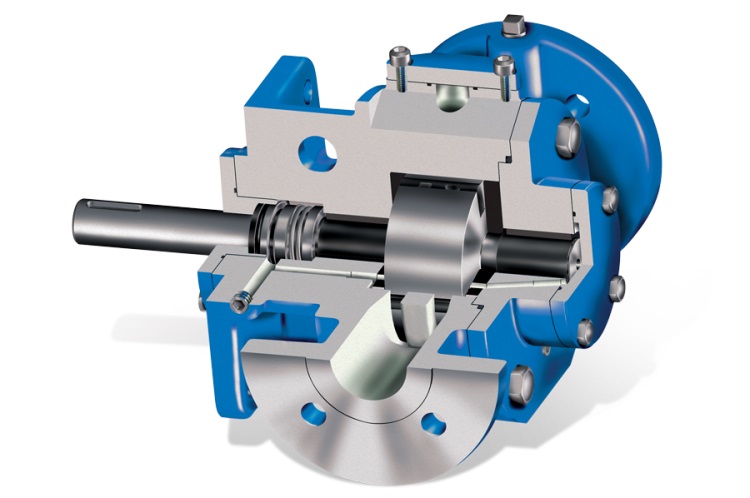What are high performance pumps?
It is estimated that in the next decade, India will be the largest importer of oil and gas. Currently, India has enough refineries to make it the second-largest refiner in Asia. The Government of India’s Hydrocarbon Vision 2030 aims to increase India’s oil and gas reserves while attracting $20 billion in private investment. India, the third largest consumer of oil and gas in the world, is estimated to require 9.8 bbl/d by the year 2040. Because of the rising demand for oil, the government plans to build 11 new terminals over the next seven years. India is also set to build more bio refineries to reduce its dependence on import of crude oil. Presently, IOCL has plans to add 7550 km pipelines for long distance transportation of crude petroleum as well as petroleum products. The industrial pumping solutions from IDEX empower terminal and bulk plants, industries associated with transportation, and energy industries with world-class products and technology. The pumps of Idex are highly proficient in dispensation, transfer of liquids, boosting of pressure, evacuation, and mobile applications.
The numbers indicate that industries associated with LPG and petroleum products need high performance liquefied gas pumps. These pumps are capable of transporting gallons of petroleum liquids and gas, extracting those, refining crude oil and gas, and also transporting the refined oil and gas. Vane pumps are one such high performance pump series that is extensively used for heavy duty applications in the oil and gas industry.
Role of the Turbine pump for LPG and ammonia Applications
Turbine pumps are used extensively in the LPG industry, especially for LPG propane and butane, as well as ammonia products used in agriculture. They are also used for ammonia applications. These pumps have floating impellers that are known for reducing wear and tear. The Coro- Flo turbine pump by Corken can easily handle moderate to high differential pressures. The liquid that is inserted into the pump gets circulated between the teeth of the free –floating impeller. This pump is preferred by applications that require low and precise flow. The best part of this pump is the fact that the design does not support any metal- to- metal contact.
A positive displacement pump uses the mechanism of fluid displacement to transport fluid from one place to another. It encloses a definite amount of fluid, and moves it mechanically through the system, with the help of vacuum- induced pressure and thus, lets the liquid or gas be displaced. The positive displacement pumps by IDEX are used for the following applications – upstream production and stabilization, midstream phase, during which the gas and liquid are carried to a storage tank or cargo ship. It is also used for transferring during gas treatment, and production of LNG. This pump helps in transferring LPG through long pipelines and is also used in regasification plants. In the downstream refining procedure, refining of crude oil, gasoline, diesel, LDO, HFO, and crude tar takes place. For manufacturing and different stages of processing of a wide range of petrochemicals, this specialty pump is also used.
If the liquid being transported has a variety of physical properties or has versatile properties, extra care must be taken when performing the following applications: pumping the liquids over long or short distances, congealing, high pressure injections, metering, dosing, low NPSH conditions, negative suction, loading and unloading from vessels.
An ammonia compressor uses ammonia as a refrigerant. Since its inception in 1924, Corken has established itself as a preferred manufacturer of industrial compressors. Corken’s reciprocating compressors are an excellent choice for natural gas, liquefied gas, chlorine, vinyl chloride, methyl chloride, sulphur dioxide, butadiene, hydrogen, helium, etc. These range of compressors are free from oil, are single or multi stage in nature. 7.5 to 75 hp- a range of small horsepower in reciprocating compressor is the most preferred industrial compression solution.
The bulk LPG unloading compressor by Corken confronts the challenges faced by the Indian refineries. A few of these challenges are – higher time and cost for unloading, more consumption of basic industrial utilities like water and power, and requirement of regular and heavy maintenance. A superior LPG compressor used for unloading can speed up the whole unloading process, thereby increasing the number of tankers unloaded on day- to- day basis.
The process of LPG bottling, the highly volatile LPG gas, needs a line of safety measures to be followed. In order to prevent leakage, explosions, and unintended blending of chemicals, pumps too need to be of high quality. In the bottling process, the LPG gas is put into portable cylinders and used by consumers for cooking, running vehicles, heating, etc. Portable LPG cylinders are also used in industries, although on a much wider scale as compared to domestic applications.
